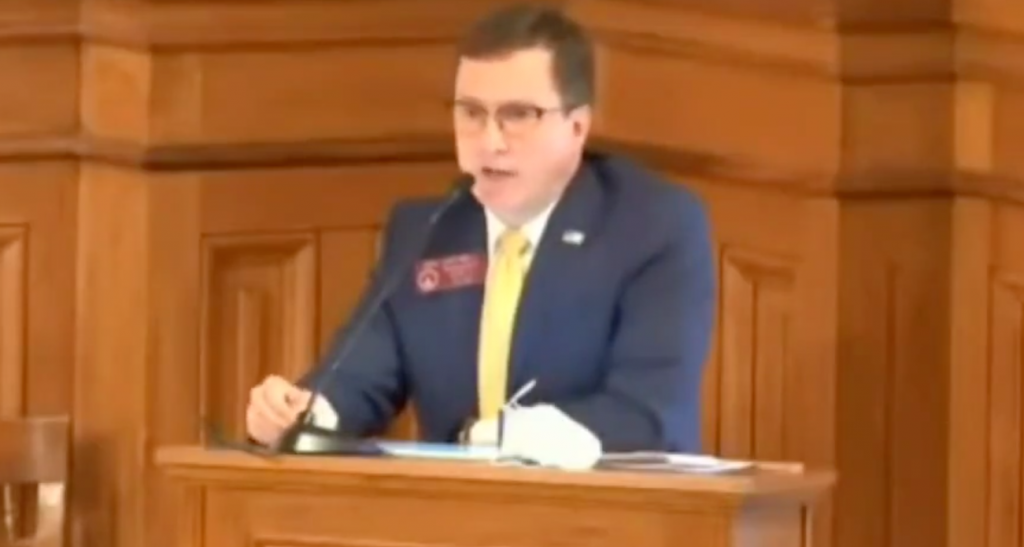Watch A Politician Take On The Claim That Private Schools Have Less Accountability Than Public
In the Georgia Senate as Rep. Wes Cantrell, R-Woodstock, introduced two bills, HB 60 and HB 999, that would require the state to set aside funds for private-school scholarships. But before they went to vote, Rep. Cantrell was grilled on private school accountability.

In the Georgia Senate as Rep. Wes Cantrell, R-Woodstock, introduced two bills, HB 60 and HB 999, that would require the state to set aside funds for private-school scholarships. But before they went to vote, Rep. Cantrell was grilled on private school accountability.
Rep. Bee Nguyen, (D-89th District) took to questioning Cantrell as he was introducing the bills and pressed him on why private schools don’t have the same level of accountability as public schools. “Why don’t these schools [private] have the same level of accountability and scrutiny as our public schools?” Rep. Cantrell didn’t waste any time with his answer and made his point perfectly clear.
“You’re right,” Cantrell responded. “They don’t have the same level of accountability. They have a much higher level of accountability.” Then he explained why the level of private school accountability is higher than in public schools. “Because,” he said, “the families have the freedom to leave and take their money with them any time they are not happy with what’s going on at the school. They don’t have that option currently in the public school.” The quick debate was posted to Corey DeAngelis’ Twitter account and can be seen below…
Nguyen continued to press Cantrell. She pointed out that the state was currently using the money for private schools, inferring that these bills were not needed. Again, Cantrell was quick to respond by explaining to Nguyen that yes, if the bills were to be passed that the funds would be going right back to the taxpayers which would allow them to use their funds however they see fit. The purpose of the bills is to fund the students and not the systems, a war cry that is being heard across the nation. This back-and-forth can be seen below…
While explaining to Nguyen that this is the “big difference” between what is currently being done in the Georgia school systems and what he and his colleagues are calling for, he also pointed out that his bill is already being done with other funding options in the state such as the Pell Grant, the G.I. Bill, and even pre-K. “Money follows the student,” Cantrell said.
What it comes down to for Rep. Cantrell is for the state to “consider that same logic” for grades K-12. If private school accountability is in effect since monies can follow students, why not make the same rules for public schools. School choice is what most parents are asking for, Rep. Cantrell believes it is time to give it to them.
The combination of HB 60 and HB 999 would require around $6,000 per Georgia student every year for scholarships. They could then take this money to approved private schools or they could use the funds for other approved educational expenses. Again, private school accountability would come into effect as they would not want those potential funds to go away.
Past studies have already shown that a school-choice voucher system has saved taxpayers money. In Georgia, the average cost per student, per the U.S. Census Bureau, is $10,205 a year. EdChoice conducted a study that showed in 2018 the school voucher system saved Georgia taxpayers anywhere between $605 million and $1.1 billion.
Good news – the House Subcommittee on Academic Innovation approved both HB 60 and HB 999. According to DeAngelis, it was by a 9-7 vote. Probably much closer than Rep. Cantrell hoped for, but a win, nevertheless. Now there may be some public-school accountability to go along with the private school accountability.



